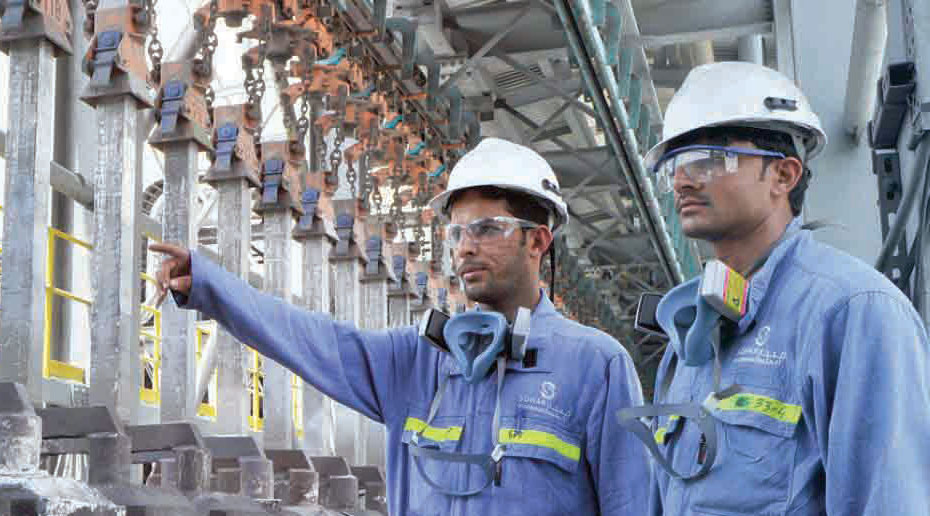

MUSCAT, OCT 14 - The aluminium industry in the Middle East has bright growth prospects thanks to increasing demand in international markets and the pro-active development of aluminium clusters in the region, says Said Mohammed al Masoudi, CEO of Sohar Aluminium, the host of this year’s ARABAL 2017. With the continuous increase in the region’s primary aluminium production, currently constituting 10 per cent of the total world production, the aluminium industry is considered one of the key economic drivers for the Middle East, Al Masoudi noted in recent comments to journalists ahead of ARABAL 2017.
The four-day event, focusing on the theme, ‘Driving Strategic Growth across the Global Aluminium Industry’, will take place at Shangri-La Barr Al Jissah Resort & Spa in Muscat from November 6-9, 2017.
The region is now a key economic contributor to a growing global demand for aluminium that is estimated to reach 70 million metric tonnes per year by 2020.
With the support of the government, state-of-the art facilities, expertise of employees and high quality materials, aluminium products in the region are able to compete internationally and are being exported to US, Europe, India, East Asia and other parts of the globe.
The main aluminium smelters in the region will help catalyse downstream industries, job creation and add value to the region’s resources.
“Aluminium has emerged as one of the key economic movers of growth in the Arab region and complements the efforts to diversify industry beyond oil and gas. Sohar Aluminium is a primary example of how quickly smelters in this region have been able to supply international markets and add value to national economies,” Al Masoudi said.
Asked if automation, which is the trend in any business, would lessen job opportunities in the industry, Al Masoudi said: “The aluminium industry is a labour-intensive industry with a strong potential for job-creation.
But it does not mean that we cannot employ new technologies. But automation will create its own job generating opportunities,” the CEO said, noting that “humans will need to work alongside new technology in order to be more productive”.
Significantly, the six major smelters in the region provide direct and indirect job opportunities to more than 40,000 people with a strong focus on nationalisation at various levels of its business.
Sohar Aluminium, in particular, prides itself on its impressive 76 per cent Omanisation underpinned by a sustainable workforce development strategy, Al Masoudi said. Also, hot metal produced at Sohar Aluminium is delivered directly to downstream partners for further processing.
Last year, 64,316 tonnes of hot metal was sold directly to adjacent customers like the rolling mill and cable manufacturer, thus providing indirect jobs to local industries in Oman as well.
Jomar Mendoza
Oman Observer is now on the WhatsApp channel. Click here



